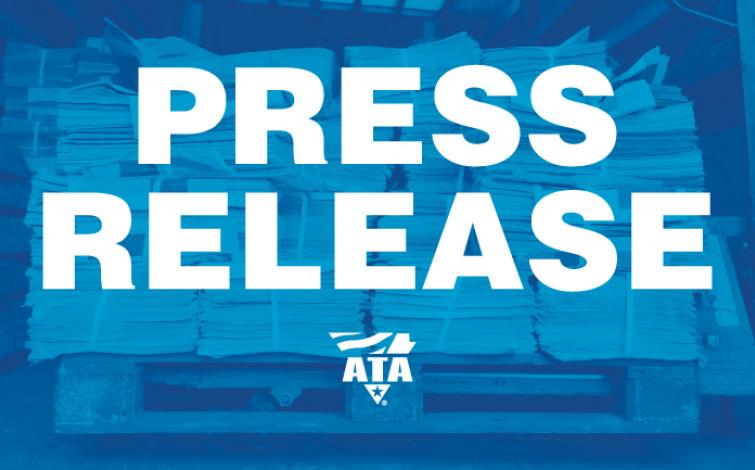Washington – Introduction of the DRIVE Safe Integrity Act
Today, the American Trucking Associations (ATA) and the International Foodservice Distributors Association (IFDA) expressed their support for the newly introduced DRIVE Safe Integrity Act. This legislation, brought forth by Representatives Rick Crawford (R-Arkansas) and Henry Cuellar (D-Texas), aims to tackle the ongoing shortage of truck drivers. The bill builds on the bipartisan support for the DRIVE Safe Act seen in previous Congressional sessions and incorporates the Safe Driver Apprenticeship Pilot Program established in the bipartisan infrastructure law.
Importance of a Strong Trucking Workforce
ATA President and CEO Chris Spear stated, “To create a modern supply chain, we need a robust and expanding trucking workforce.” He emphasized that the DRIVE Safe Integrity Act will enhance career opportunities in interstate trucking while ensuring safety and training standards that significantly surpass current state requirements. This timely legislation serves as an essential solution to the trucking workforce and supply chain challenges, rooted in extensive bipartisan Congressional backing.
Urgency in Developing Qualified Drivers
Mark S. Allen, President and CEO of IFDA, highlighted the vital role truck drivers play in the U.S. economy and the pressing need for a steady influx of well-trained professional drivers. He remarked, “Strengthening the ability of younger drivers to undergo rigorous training and safely enter the trucking workforce is crucial for meeting growing freight demands,” and commended Representatives Crawford and Cuellar for their bipartisan efforts in addressing this challenge.
Current Truck Driver Shortage
The trucking industry is grappling with a shortage of over 78,000 drivers and will require 1.2 million new drivers within the next decade to meet increasing freight demands. Unfortunately, existing U.S. Department of Transportation (DOT) regulations restrict a significant pool of potential job seekers from participating in interstate trucking, leading to qualified candidates seeking opportunities in other sectors. In 49 states and the District of Columbia, 18 to 20-year-olds can obtain a Commercial Driver’s License (CDL) for intrastate commerce, but federal regulations prohibit these drivers from engaging in interstate commerce.
Challenges with the Pilot Program
The 2021 bipartisan infrastructure law initiated a nationwide pilot program inspired by the DRIVE Safe Act to facilitate young drivers’ entry into interstate trucking with stringent safety and training measures. Although the Safe Driver Apprenticeship Pilot Program was limited to 3,000 drivers at any given time, there have been fewer than a dozen enrollments. This low participation rate is partly due to additional DOT requirements for program participation that were not outlined in the original bipartisan infrastructure law.
Proposed Enhancements in the DRIVE Safe Integrity Act
The DRIVE Safe Integrity Act aims to realign the pilot program with its original objectives. It will encourage the DOT to take necessary actions to enhance participation in the Safe Driver Apprenticeship Program and mandate regular reports to Congress regarding its status and measures taken to increase participation.
Future Regulation for Apprenticeship Programs
“By directing the DOT to align the Safe Driver Apprenticeship Pilot Program with its intended goals, this bill will ensure our industry has the skilled workforce necessary to fulfill the freight demands of the economy in the future,” Spear added. He also expressed gratitude towards Representatives Crawford and Cuellar for their exceptional leadership. Upon the conclusion of the pilot program, the bill will require the DOT to review safety data and develop regulations for a permanent apprenticeship program for commercial drivers aged 18-20.


